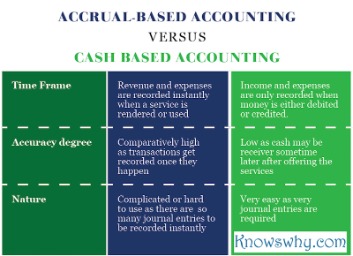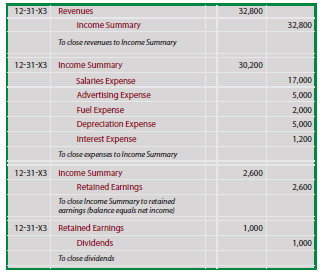
It’s designed for accounting firms and businesses that want to streamline the billing and invoicing process. Vic.ai is an AI-powered invoice processing tool with high accuracy rates and advanced machine learning algorithms. It uses powerful algorithms trained on millions of invoices to automate almost every aspect of billing without the need for templates or custom rules. ClickUp Accounting is a cloud-based business management software designed to simplify financial processes. Manage accounts, create shareable reports, and let ClickUp Brain act as your digital personal assistant so you can focus on the larger strategy. While AI is a superb tool, it isn’t something that can take the place of a real person in all tasks.
ClickUp vs. SmartSuite: Which Work Management Platform is Better?

As the industry undergoes a profound transformation, leaders are currently investigating the vast opportunities AI has to offer. Embracing AI in your business’s accounting processes can save time by automating routine tasks. By using AI, accountants can tap into vast amounts of data to accurately predict future financial trends and outcomes. These advanced tools sift through past financial records, market trends, and even global economic indicators to provide precise forecasts. This means businesses can fine-tune their financial strategies based on these forecasts. As Hollywood writers and actors have made clear with their concurrent strikes, there is an understandable fear AI will replace rather than assist us.
The Best AI Tools for Your Accounting Business

Nevertheless, AI cannot replace the judgment, experience, and creativity that humans bring to their work. Making value judgments and weighing opportunity costs are still out of the scope of AI. TECHNOLOGICAL ADVANCEMENTS AND APPLICATIONSFollowing a technological lull, the past years saw an uptick of AI applications across various industries. This nascent period saw AI becoming more adept at handling, organizing, and analyzing large sets of both structured/quantitative and unstructured/qualitative data.
- As AI continues to evolve, staying informed and prepared for change is crucial for success in this dynamic technological landscape.
- — Blake Oliver, CPA, is the founder of Earmark, which produces accounting and tax podcasts, and co-host of The Accounting Podcast.
- Everything from accounting, law, marketing, tech, healthcare, and much more will be impacted by AI.
Will AI Impact Traditional Accounting Jobs?
This is where you can see the biggest increases in productivity while giving accountants more time to work on tasks that take critical thinking and creativity. When you have so much to do that you wish you had an extra set of hands, AI is that extra set that will take care of the little things. “Perhaps because of this seeming lack of urgency from clients, tax & accounting firms are largely hands-off in guiding GenAI use internally,” said Thomson Reuters. The survey also found that firms have been a little slow to adopt these tools generally. Only 10% of respondents said their organization already uses generative AI firm-wide, with an additional 13% planning to in the future. Conversely, a full 49% have no plans to deploy generative AI and 27% are still weighing their options.
With its unparalleled efficiency, AI is liberating accountants from the shackles of routine tasks, allowing them to focus on more strategic, impactful work. With automation software, automated invoice processing workflows, including supplier onboarding and accounts payable and expense management, can be achieved electronically using AI technologies and RPA. Automation software streamlines and eliminates time-consuming paper document handling and manual data entry. We explain how to use artificial intelligence in accounts payable in more detail in another guide.
What are the advantages of using AI in accounting?
No human could go through every one of those and say whether they were indicative of fraud. Instead of writing down numbers, they are being manipulated in Excel. Those sheets used to be on the outside of a folder, and the folder had all the paperwork in it.A lot of workflow software what is cost of goods sold is still based on those old paper routing sheets. In some ways, it was more efficient when we just had all the paper in a file folder; at least it was easy to pick through and retrieve. Now we have to search through digital file folders of PDFs, and it’s often harder to find things.
AI automates simple tasks like entering data and checking transactions. This means less manual work and fewer people needed, which cuts costs. AI can work all day without mistakes, making financial reports faster and more accurate.
Executives are increasingly pursuing digital investments to attain first-mover advantages and establish scalable processes that will allow for swift market expansion. MindBridge employs advanced AI and machine learning to what is the opposite of lend dig deep into massive amounts of ERP data, automatically flagging high-risk anomalies and potential fraud. Now auditors can focus their efforts on investigating discrepancies instead of performing endless manual reviews.
Every feature is tailored to be “accounting firm friendly,” allowing you to work better and faster without sacrificing security. The AI accounting firm of tomorrow will most likely be a smaller firm that can handle the same workload as some of the largest accounting firms today. 5 min read – Activities such as planning, organizing, inventory and supply chain management are ripe for improvement through artificial intelligence.
The best way to embrace the use of AI in your accounting processes is to understand the multitude of potential AI applications and how AI can contribute to business profitability. Rather than spending a lot of time wrangling with ChatGPT chatbots or data science models in Python or R language on your own, consider using modern software that embeds AI technology. Whether you have newer cloud accounting systems or legacy on-premises software in your company, use modern cloud-based add-on software products with integration to your ERP software system.
In the future, it’s likely that a 100-employee firm and a 20-employee firm (leveraging AI) will be able to get the same amount of work done. 4 min read – Exploring the renewable energy sources available to companies and the steps they can take to accelerate their own clean energy transitions. So AI really has a ways to go before it’s figuring out accounting problems. For more information on other problems in the accounting industry, read “Top accounting issues in 2023”.
In today’s rapidly changing world, artificial intelligence (AI) is not just a buzzword but a beacon of transformation across various sectors and industries. Accounting firms, traditionally perceived as bastions of meticulousness and conservatism, are now at the forefront of this revolution, harnessing AI to redefine their operations, service offerings, and client interactions. The integration of AI in accounting is not merely an enhancement; it’s a radical reinvention that is shaping the future of the industry.
AI can be used for automatically preparing audit schedules from financial data related to financial reporting, analyzing financial information, and detecting data anomalies to be investigated by CPA firm auditors. In the accounting profession, AI can also be used by auditors at public accounting firms balancing a checkbook and by corporate internal auditors to help prepare reports. Deloitte is exploring these GenAI capabilities through labs with our clients. Read our recently published report, Demystifying algorithms and artificial intelligence, to explore how algorithms are affecting the finance and accounting world.
